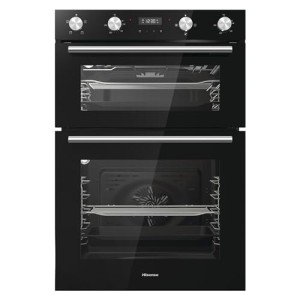5 Laws That Can Help The Built-In Oven Industry
페이지 정보
작성자Luciana 댓글댓글 0건 조회조회 11회 작성일 25-05-19 07:31본문
Understanding Built-in Ovens and Hobs: The Perfect Kitchen Combination
As modern cooking areas develop, built-in appliances are becoming increasingly popular for both functionality and aesthetic appeals. Among these appliances, built-in ovens and built in Ovens with dial Controls hobs stand out as necessary elements for any cooking enthusiast or home cook. This post explores the benefits, functions, and considerations surrounding built-in ovens and hobs. It also deals with common questions, offering a thorough guide to these kitchen basics.
What are Built-in Ovens and Hobs?
Built-in ovens are integrated ovens for sale into kitchen cabinetry, developing a smooth, seamless appearance. They come in various types, including standard, convection, and steam ovens, each catering to different cooking techniques. Hobs, on the other hand, are the cooking surface areas that integrate with the kitchen countertop. They can be gas, electric, or induction, allowing cooks to select based on their cooking design and energy preference.
Benefits of Built-in Ovens and Hobs
- Space-Saving: Built-in models optimize kitchen area by getting rid of the requirement for freestanding units, producing an open and airy environment.
- Aesthetic Appeal: Their sleek style adds to a modern, streamlined appearance in the kitchen.
- Improved Functionality: Built-in ovens typically include sophisticated cooking innovation, using a series of features like self-cleaning and smart controls.
- Customization: Build In Oven Manufacturers provide a variety of surfaces and styles, permitting house owners to tailor their appliances to match their kitchen décor.
Types of Built-in Ovens
1. Standard Ovens
Traditional ovens use glowing heat from the bottom and can be ideal for baking.
2. Convection Ovens
Stove have a fan that distributes hot air, making sure even cooking. They lower cooking time and are best for roasting meats or veggies.
3. Steam Ovens
Steam ovens use wet heat to prepare food, protecting nutrients and flavors. They are becoming increasingly popular amongst health-conscious cooks.
4. Microwave Ovens
These ovens offer quick heating and cooking and serve numerous functions, from reheating leftovers to baking.
Kinds of Hobs
1. Gas Hobs
Gas hobs utilize natural gas or propane for cooking. They supply instant heat control, making them a favorite amongst expert chefs.
2. Electric Hobs
Electric hobs have solid or ceramic surface areas that warm up by means of electric coils. They are simple to clean however may take longer to heat than gas designs.
3. Induction Hobs
Induction hobs utilize electromagnetic energy to directly heat up pots and pans, providing quick heating and energy effectiveness. They cool off quickly and provide a much safer cooking experience.
Elements to Consider When Choosing Built-in Ovens and Hobs
When selecting built-in ovens and hobs, a number of elements ought to be considered:
1. Area Limitations
Measure the readily available area in your kitchen to guarantee that the appliances will fit perfectly into the cabinetry.
2. Cooking Style
Consider your cooking practices. If you often bake, a stove may be perfect. Meanwhile, induction hobs are fantastic for security and effectiveness.
3. Spending plan
Pricing varies significantly based on features and brands. Setting a spending plan assists narrow down the choices.
4. Energy Source
Determine whether you desire gas or electric appliances. This decision can affect cooking performance and energy expenses.
5. Visual appeals
Choose surfaces and designs that match your kitchen's design. Stainless-steel is a popular choice for a modern-day appeal.
Contrast of Built-in Ovens and Hobs
| Feature | Built-in Oven | built In ovens with delayed start-in Hob |
|---|---|---|
| Type | Convection, steam, and so on. | Gas, electric integrated oven, induction |
| Cooking Versatility | High | Moderate to high |
| Cleaning up Ease | Differs by design | Typically easy to clean |
| Setup Style | integrated hob and oven in cabinets | Flush with counter top |
| Energy Efficiency | Differs by design | Induction generally most effective |
Frequently Asked Questions About Built-in Ovens and Hobs
1. Are built-in ovens more expensive than freestanding designs?
Yes, built-in ovens generally come with a greater cost due to their design and setup requirements. Nevertheless, they typically use more sophisticated functions.
2. Can I change my existing freestanding oven with a built-in model?
Yes, it's possible to replace a freestanding oven with a built-in model, but you might need to make changes to your cabinetry and kitchen layout.
3. What upkeep do built-in ovens and hobs require?
Regular cleaning is important. Lots of built-in ovens come with self-cleaning features. It's also essential to keep the hobs devoid of spills and grease.

4. Are induction hobs safe for families?
Induction hobs are thought about much safer than gas or electric choices due to the fact that they only heat the pots and pans, lowering the risk of burns or accidents.
5. How can I make the most of the performance of my built-in oven and hob?
To maximize efficiency, constantly pre-heat the oven when needed, use the appropriate size pots or pans on the hob, and consider utilizing the recurring heat from your hob after cooking.
built in ovens uk-in ovens and hobs supply various benefits, making them popular choices for contemporary cooking areas. Their space-saving styles, advanced features, and aesthetic appeal add to their high demand. By considering aspects like space, cooking design, and spending plan, property owners can choose the perfect combination of appliances that best suit their cooking requirements. Whether through gas, electric, or induction hobs, and a range of oven types, the right built-in kitchen appliances can boost the cooking experience while raising the total visual of the kitchen.
댓글목록
등록된 댓글이 없습니다.

